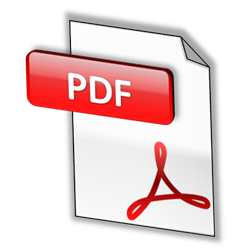
Macroeconomics II
102665
2024-25
MASTER'S DEGREE IN ECONOMICS AND FINANCE
6
MANDATORY
Cuatrimestral
English
This course has four aims:
1) introduce uncertainty into Arrow-Debreu market structure and study
its implications for asset pricing and insurance;
2) get you acquainted with the stochastic version of the Neoclassical
Growth model;
3) study the extensions of the neoclassical framework that allows for
frictions in labor and good markets, with a focus on the New Keynesian (NK)
models;
4) study the role of government policies within neoclassical growth
model and NK models.
·More information: cemfi.es.
G1 - Demonstrate solid knowledge of economic theory, and the relevant
economic, econometric and computational techniques.
G2 - Know how to apply the knowledge acquired and be able to use
problem-solving abilities in new or relatively unknown settings within wider
or multidisciplinary contexts related to economics and finance.
G3 - Integrate knowledge and tackle the complexity involved with making
judgements based on incomplete or limited information, and which includes
reflections on the social and ethical responsibilities tied to the application
of one's knowledge and judgement.
G4 - Critically analyse, assess and summarise new and complex ideas
related to empirical theories and methodologies in the field of economics.
G5 - Design and carry out an advanced academic research project,
formulating reasonable hypotheses in the field of economics.
G6 - Give clear and unambiguous oral presentations of scientific and
technical work on economics to specialised and non-specialised audiences.
G7 - Produce suitable written compositions, as well as work projects or
scientific articles.
G8 - Organise and plan one’s own work, fostering initiative and an
entrepreneurial spirit.
G9 - Become part of work groups dedicated to economic research projects.
G10 - Demonstrate sufficient independence, and study and summary skills
so that after the master’s programme, students are able to undertake a PhD in
the field of economics.
EO7 - Be aware of advanced theories and models on modern macroeconomics.
ET2 - Have an in-depth knowledge of how fundamental microeconomic
actors, consumers and producers behave, and the main results of the concept of
general competitive equilibrium. Possess basic knowledge in game theory with
complete information.
ET3 - Be aware of the main modern information economy models, based on
analysis of choices in situations of uncertainty and game theory with
incomplete information.
ET4 - Have basic knowledge of macroeconomics through structure analysis
and what the main reference models imply.
ET5 - Possess the necessary statistical knowledge to be able to follow
econometrics courses and topics with statistical content from other courses on
the programme, with regard to the basic concepts of probability theory,
inference and asymptotic theory, with particular reference to regression
models.
ET6 - Know the main estimation and inference models and methods used in
econometrics, both for time series, and cross-cutting and panel data.
Type of activity
Hours
%In person
Theory classes
100
Practical classes
100
Study of the theory content of the course
0
Solve practical exercises
0
Prepare class presentations
40
Theory classes
Exercises
Essay writing
Class discussion on work submitted by students
-Rigorous and full knowledge of the main mathematical methods used in
economics.
-Have an in-depth knowledge of how fundamental microeconomic actors,
consumers and producers behave, and the main results of the concept of general
competitive equilibrium. Possess basic knowledge in game theory with complete
information.
-Be aware of the main modern information economy models, based on
analysis of choices in situations of uncertainty and game theory with
incomplete information.
-Have basic knowledge of macroeconomics through structure analysis and
what the main reference models imply.
Type
Minimum score
Maximum score
Exercises
0.05
0.3
Presentations
0.05
0.15
Exams
0.7
0.95
- Academic schedule
Porfessor responsible for the subject
Wednesday (9:30-12:30) and Thursday (15:00-16:00)
This document can be used as reference documentation of this subject for the application for recognition of credits in other study programmes. For its full effect, it should be stamped by UIMP Student's Office.

Description undefined
Cuatrimestral
ECTS Credits: 6
Mitman , Kurt
Doctor en Economía, University Pennsylvania.
Profesor de Economía.
Centro de Estudios Monetarios y Financieros (CEMFI)
Teacher responsible for the subject


